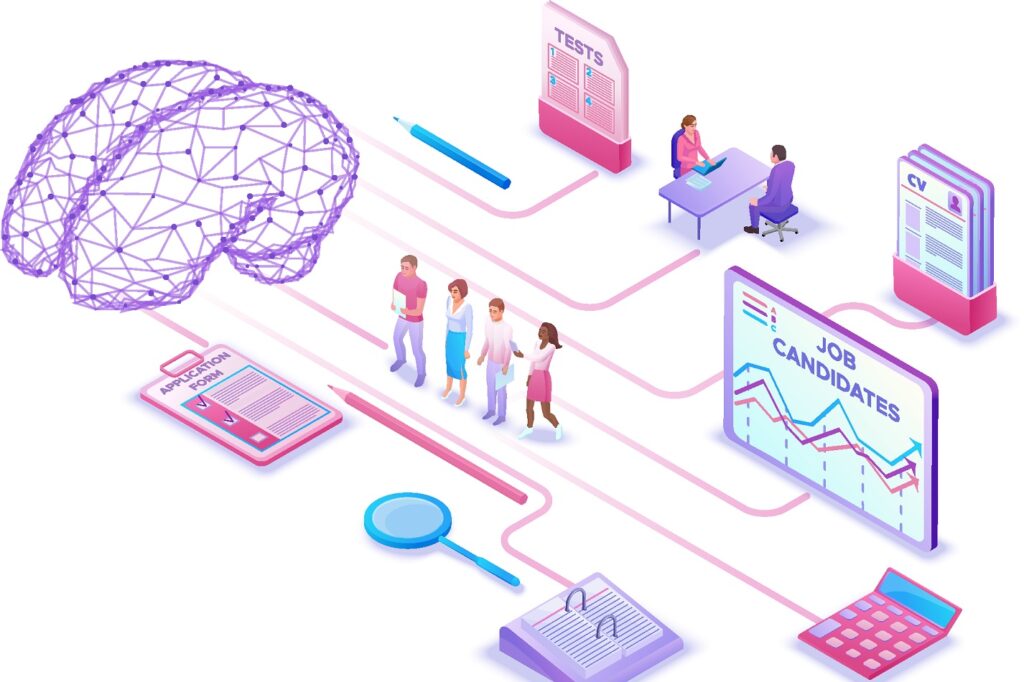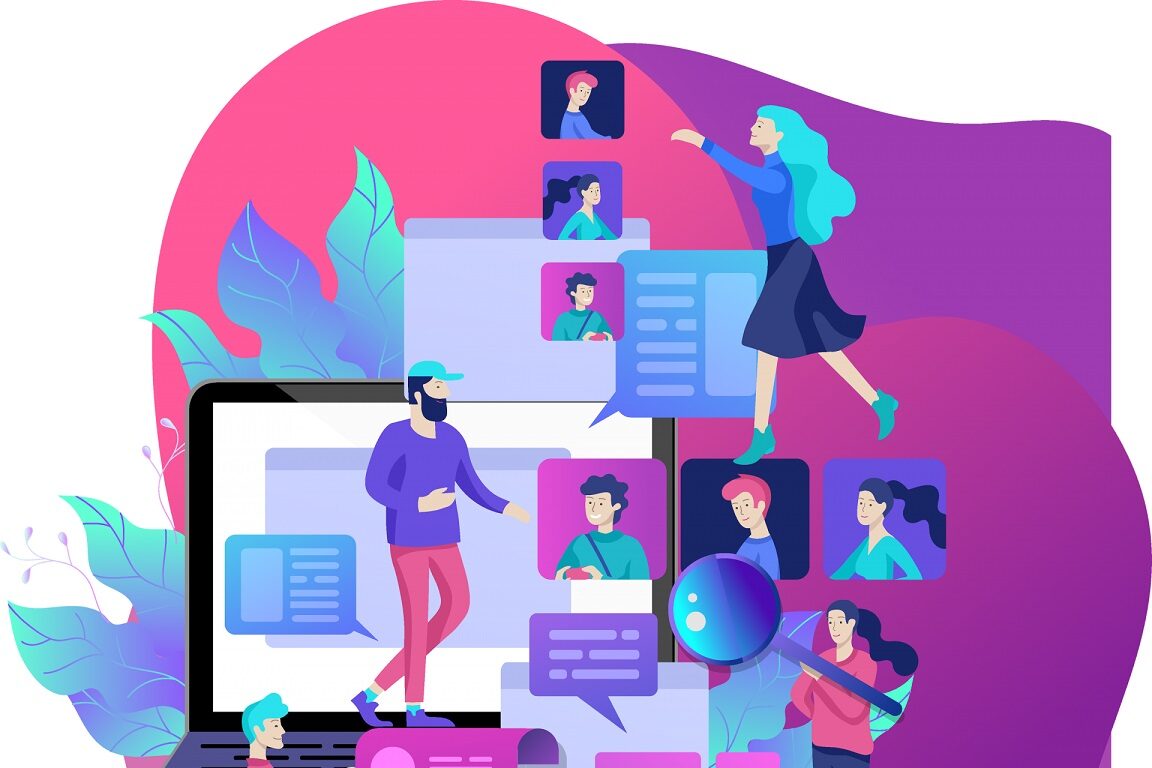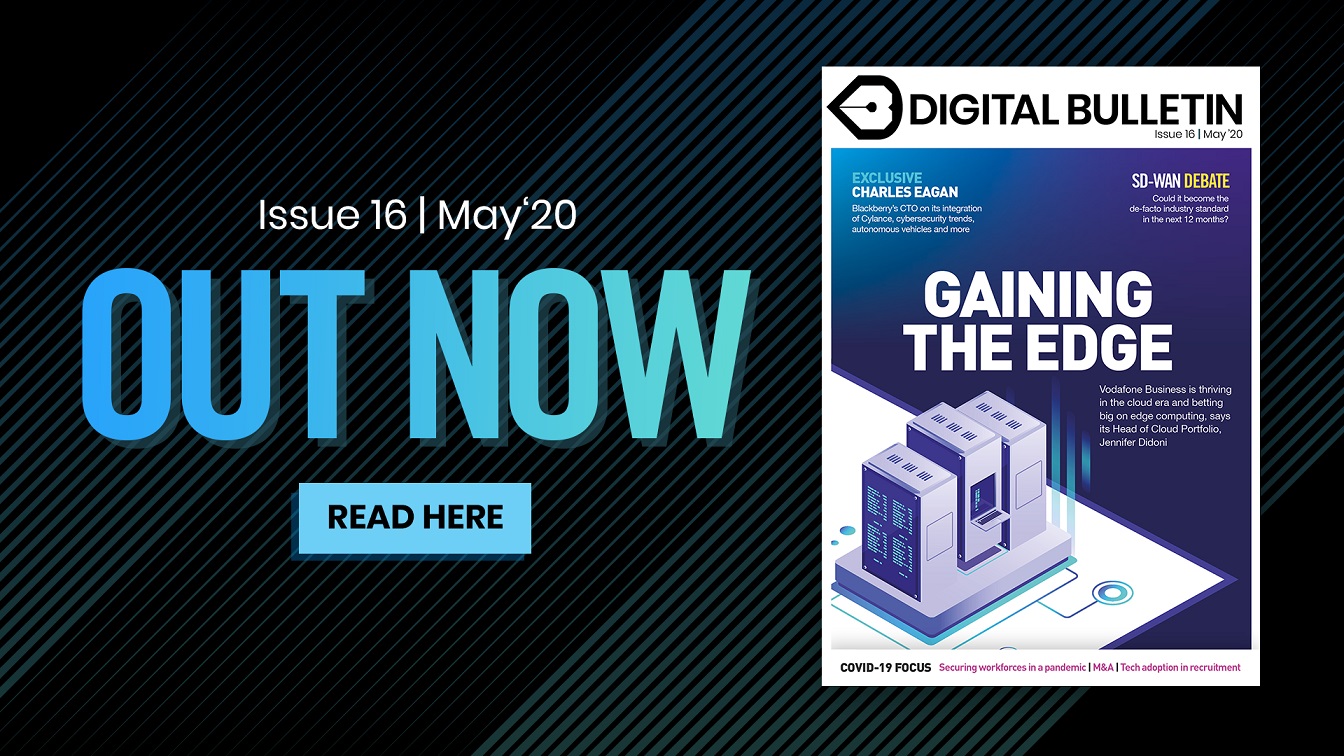
Effective recruitment has always been a labour intensive process, with hiring managers often having to sift through hundreds of potential candidates in the hope of finding a diamond in the rough. In a number of sectors – technology being a prime example – the war for talent is intense, meaning making the right appointments is more important than ever. Businesses can’t afford to get their hiring decisions wrong, lest they lose ground and revenues to their competitors.
Until a few years ago, the method of finding the right person for the job had remained steadfastly similar: basically a numbers game where, for every suitable candidate, you had to wade through a far greater number of people that simply didn’t fit the bill. But the recent era has been one of the golden ages of technology, helping to drive advancements across the whole spectrum of enterprise, and talent acquisition is no exception.
It would be hyperbole to say that the world of recruitment and technology has been turned upside down by the widespread adoption of technology, as has been the case in other areas of industry. But what is undeniable is that technologies such as artificial intelligence (AI) and machine learning, along with advanced analytics techniques, are being increasingly utilised in the recruitment process, especially in the initial efforts to shortlist sets of qualified professionals.
Korn Ferry, a global management consultancy with a rich history in the talent acquisition and recruitment process outsourcing (RPO) spaces, was an early adopter and proponent of AI, confident that the technology could complement the efforts of its workforce and take away some of the strain and repetitive elements of the recruitment process. Today, AI forms an important component of its recruitment approach, with the KF Recruit platform at its core.
KF Recruit is an AI-enabled sourcing technology underpinned by Korn Ferry’s intellectual property, optimising recruiters’ productivity by sourcing high-quality candidates in seconds and automating repetitive manual tasks. It is no exaggeration that these are tasks that would previously take its staff hours to do.
Speaking exclusively to Digital Bulletin, Kay Cooper, Managing Director of RPO EMEA, says: “KF Recruit is a combination of our proprietary IP and our exclusive partnerships with various tech providers plugged in. We’ve developed success profiles from our advisory team architecture around skills required for a role.
“We input the hard skills, soft skills, background, competency drivers and training alongside other important information into the platform, which we can combine with what we consider to be a gold standard profile. The tool is able to take all of that and go out and identify all of the candidates it thinks are suitable.”

AI helps identify the candidate in a better way and bring them to our clients who are competing against other organisations. By finding the candidate quicker, AI is helping the client win the war for talent; we know who the top people are and we’ve attracted them to our client faster
Those longlists are then fed back to the recruiters who can make a judgement on whether the candidates are indeed suitable, with that information – a simple tick or cross – helping the AI to better understand why some candidates are suitable and others not, enabling it to improve with each search it makes.
Its success has allowed Korn Ferry to build out its ‘success profiles’, which it can arm its recruiters with prior to meetings with external hiring managers. This ability, says Cooper, has changed the dynamic of these meetings, which had previously been a “bit one way”.
“Success profiles have massively improved the credibility of the recruiter because in an RPO model when you’re doing 10,000 hires a year, you can’t have every recruiter being a specialist on every requisition that comes in,” she says.
“The recruiter can go to those briefing meetings with a detailed, data-driven document that already maps out all of the supply and demand information on that specific market, skills information and competitors that should be targeted that may not be obvious, which is really relevant in digital hiring.
“Recruiters can run AI searches prior and go to meetings armed with all of this relevant information and a long list of suitable profiles. We’ve seen a huge spike in feedback from that initial hiring process.”
The AI technology has also proven itself to be an internal value adder, fulfilling the often cited potential to take some of the strain of repeated and laborious work away from humans, freeing them up to take on tasks that require more critical thinking. And in turn, the hiring cost to clients has fallen markedly.
Cooper says that the previous method required a great deal of “heavy lifting”, trawling through professional networking sites, posting job adverts and assessing a bulk of applications, with sometimes less than 20% of those being considered suitable.
“The value of the work our recruiters and those doing sourcing is far higher because AI is doing the lower value piece. We are an RPO organisation so we need to be efficient, we need to have a price point that is compelling in the market, so the AI really helps to achieve that.
“It has a knock on effect to the client, because it might have cost four times what it does under the previous model. The cost of hire with RPO is probably a quarter of what it was, which is obviously hugely compelling.”

Any company worth its salt knows that its success and failure is determined by the quality of its recruitment, something that is more important than ever when many industry’s most valuable sectors have pronounced skills gaps. Those companies fighting each other for the best talent need an edge.
“AI helps identify the candidate in a better way and bring them to our clients who are competing against other organisations. By finding the candidate quicker AI is helping the client win the war for talent; we know who the top people are and we’ve attracted them to our client faster,” Cooper comments.
“It also allows you to better engage with them and have more meaningful conversations. Because we can pinpoint who they are, we can pick up the phone and talk to them, which is a nice change from candidates in competitive markets being bombarded by inbound messages. The technology is actually taking recruiters back to techniques that worked much better 15 years ago where they pick the phone up and engage with people.”
As with every industry sector, talent acquisition is being hit by the effects of the COVID-19 pandemic. Before the virus took hold, AI and the wider integration of cutting-edge technologies were predicted to be one of the key trends for the recruitment world in 2020. Cooper believes that the impact of this crisis will only accelerate that process.
“As a result of coronavirus, technology in talent acquisition is going to become even more pronounced. Not every client has been swift to adopt technology to transform, even if it is not a cost,” she comments.
“Our clients directly benefit from our platform but there are still some companies that barely have an Applicant Tracking System, for example. I think what this will do is force organisations that have been slow to the curve with the talent acquisition technology revolution to get on that curve fast.
“Most talent acquisition operating models are going to change and so is the market, once we get through and deal with the consequences we’ll all be re-evaluating everything we do, all businesses will I think, certainly from an efficiency perspective. I think we’ll see much more appetite for that technology.”



